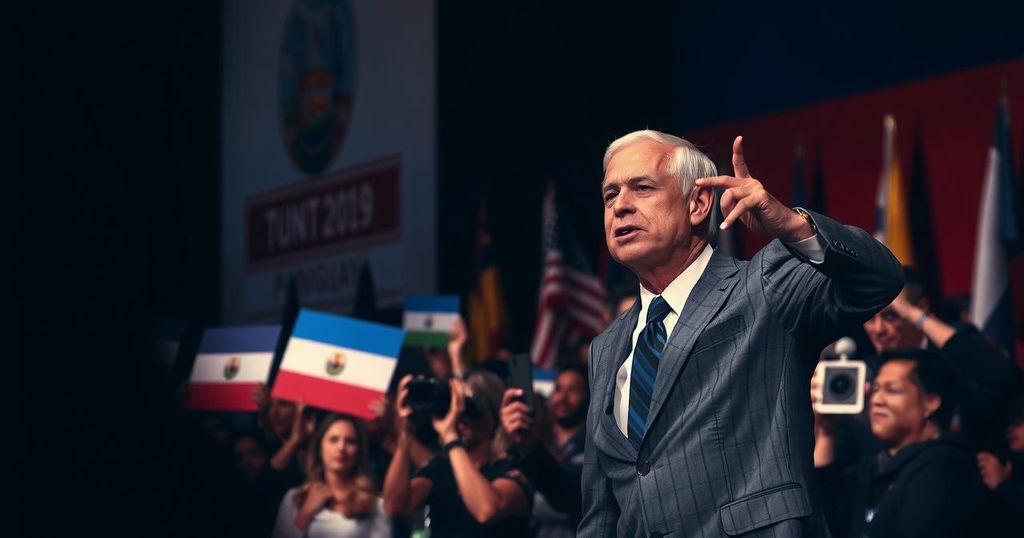World news
ALVARO DELGADO, ARGENTINA, ASIA, ATLANTIC, BROAD FRONT, COLORADO PARTY, CUBA, DELGADO, DEMOCRACY, ELECTIONS, FRONT, JOSE MUJICA, LATIN AMERICAN, LUIS LACALLE POU, MEXICO, NATIONAL PARTY, NORTH AMERICA, OR, PHILIPPINES, POLITICS, PRESIDENTIAL ELECTION, PRESIDENTIAL ELECTIONS, SOUTH AMERICA, TRADE RELATIONS, URUGUAY, VENEZUELA
Fatima Khan
0 Comments
Uruguay’s Presidential Run-off: A Focus on Democratic Coexistence
Uruguay’s recent presidential run-off featured conservative Alvaro Delgado against leftist Yamandu Orsi, in a climate markedly tranquil compared to the political turbulence in neighboring Latin American countries. Orsi, backed by former President Mujica, seeks to raise wages while Delgado pushes for bureaucratic reforms and trade agreements. Both candidates emphasize democratic integrity and collaboration regardless of the outcome.
In Uruguay, a presidential run-off was held between conservative candidate Alvaro Delgado and leftist rival Yamandu Orsi, following a previous general election on October 27. Political tensions characterized electoral processes in neighboring Latin American nations, but Uruguay emerged relatively undisturbed. Yamandu Orsi, receiving 44 percent of the first-round votes, aimed to secure the presidency while Alvaro Delgado, with 27 percent support, anticipated drawing votes from Andres Ojeda, a fellow conservative who placed third.
Orsi, a history educator and former member of the ruling Broad Front coalition, was endorsed by popular ex-President Jose Mujica, known for his simplicity and humility during his presidency from 2010 to 2015. Uruguayan society has praised Mujica for his dedication to social issues, raising Orsi’s profile in the election. Delgado, the 55-year-old candidate from the current ruling National Party, embraced economic growth strategies focusing on administrative efficiency and international trade.
Both aspirants underscored their mutual commitment to accepting the election’s results and ensuring peaceful democratic processes. Fernando Pereira, head of the Broad Front coalition, affirmed the election’s significance for national integrity and stability. Ojeda highlighted the tranquility of the electoral atmosphere, noting it was so calm that a foreign observer might not realize an election was occurring.
This presidential contest not only reflects the country’s democratic resilience but also the contrasting approaches each candidate advocates for the future economic strategies and social policies of Uruguay, marking an important chapter in the nation’s political landscape.
The political climate in Latin America has been notably tumultuous in 2023, with several countries experiencing increased violence and contested elections. In contrast, Uruguay’s political stability presents a unique scenario that has garnered attention. The country is holding crucial presidential elections, with the current ones being a run-off between Alvaro Delgado of the National Party and Yamandu Orsi from the left-wing Broad Front coalition. Uruguayan democracy has been characterized by its relative calmness and adherence to electoral processes, even amidst regional challenges.
The recent presidential run-off in Uruguay encapsulates the nation’s dedication to democratic values amidst a turbulent regional backdrop. With Alvaro Delgado and Yamandu Orsi vying for the presidency, the election illustrated not only competing visions for Uruguay’s economic future but also a commitment to democratic coexistence. The calm electoral process stands in stark contrast to the political unrest observed in other Latin American countries, spotlighting Uruguay as a model of stable democracy within the region.
Original Source: www.aljazeera.com




Post Comment